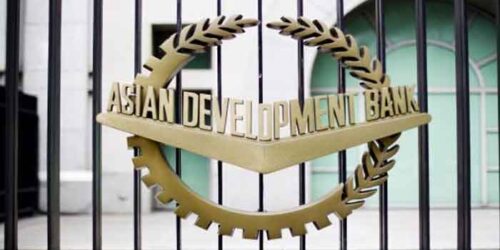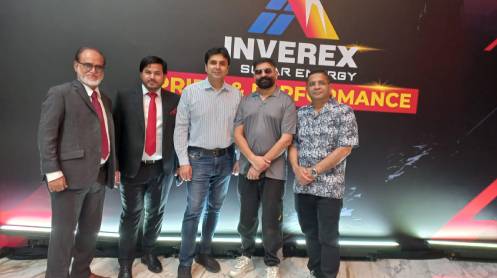An important meeting with the Asian Development Bank (ADB) officials was held in the Federal Board of Revenue (FBR) HQ to review the progress made on “FBR Reform Engagement with ADB” and the issues and challenges being confronted for effective implementation.
The FBR team was led by Chairman Dr Muhammad Ashfaq Ahmed and ADB team was headed by John Hurley, United States’ Alternate Executive Director who was accompanied by Country Director Yong Ye, Principal Energy Specialist Asad Aleem, Executive Director Noor Ahmed, Senior Project Officer Financial Sector Sana Masood, Senior Project Officer Infrastructure Khurram Ghafoor and Senior Economist Farzana Noshab.
Member (Customs Operations) Syed Muhammad Tariq Huda, Member (IR Operations) Qaiser Iqbal, Member (Reforms) Ambreen Iftikhar, Chief FATE/Director (Media) Muhammad Asad Tahir and Project Director (PRR) Nadeem Basheer were also present in the meeting.
At the very outset, the progress on Integrated Transit Trade Management System (ITTMS) was shared with the ADB delegation in the meeting. Giving specific details about customs trade facilitation at Border Crossing Points (BCPs), the FBR team informed that facilitation of Multi-agency administration and round the clock operationalisation and establishment of well-equipped import & export Custom Control Zones (CCZs) at Border Crossing Points have been ensured.
Regarding Customs Trade Harmonization at BCPs, it was briefed in the meeting that the least possible human interface between entry and exit points has been ensured for an enhanced trade facilitation. Moreover, WeBOC has been integrated with Pakistan Single Window (PSW) for real time data sharing with the concerned stakeholders.
The Electronic Data Interchange (EDI) is also being shared with regional economies and trading partners. Speedy electronic verification of documents, clearance, weighing and scanning has expedited cross-border cargo movement under WTO’s Trade Facilitation Agreement (TFA) for reducing Cost of Doing Business.
During the meeting, the progress on Tax Administration Diagnostic Assessment Tool (TADAT) was also shared with ADB Team. The visiting delegation was informed that FBR has launched the formulation of Inland Revenue Code in a bid to harmonize all inland taxation laws and maximize facilitation of taxpayers.
The single Inland Revenue Code will reduce the implementation cost of FBR and reduce compliance cost for taxpayers.
The ADB Team was apprised of broader revenue mobilization initiatives of FBR particularly in the realm of Pakistan Raises Revenue Program (PRR).
It was informed that FBR was on its way to achieve objectives of the Program for simple and transparent tax system, effective control of taxpayers’ obligations and facilitation of compliance and institutional development for efficiency and accountability.
Chairman FBR dilated upon the key initiatives of FBR which included E-Monitoring (Track & Trace System), Point of Sale (POS) Integration, establishment of Single Sales Tax Portal and similar other technological initiatives.
He further reaffirmed that team FBR had done wonderfully well in the last financial year by exceeding the assigned revenue target of Rs. 4691 Billion and FBR had already collected Rs. 235 Billion in excess of the assigned budget for the first four months (July-October, 2021), achieving a commendable growth of 36.7 %.
He informed the delegation that for the first time ever in FBR history, the country’s premier revenue collection organization has adopted a policy of clean revenue collection by not holding back a penny in refunds payable to taxpayers and not accepting any advances, as against the standing practices in the past.
The ADB team appreciated the FBR’s efforts to maximize revenue potential through automation and digitization and hoped that team FBR will continue to maintain its ongoing momentum to broaden the tax base through technology and thus collect maximum revenue for the people of Pakistan.
At the end, Chairman FBR thanked the visiting delegation of the ADB and reassured them of full cooperation from the FBR in ensuring smooth bilateral engagement between the ADB and the FBR.





